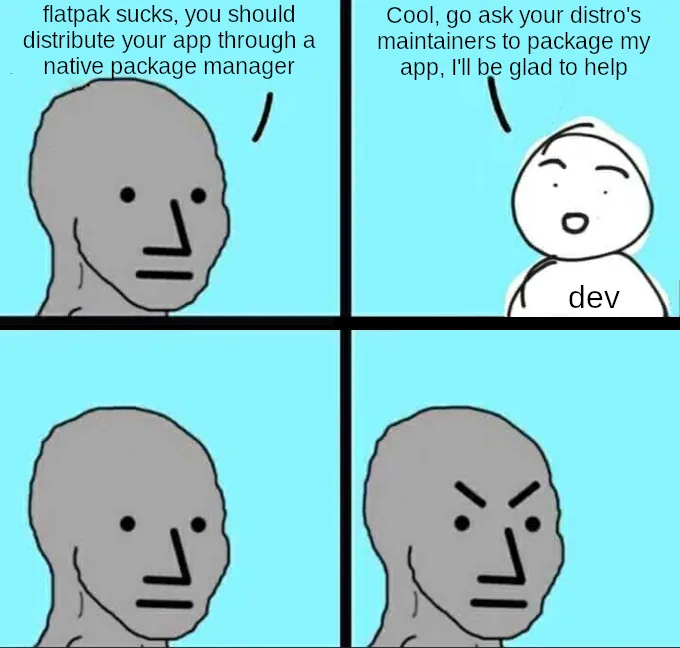this post was submitted on 05 Jul 2024
745 points (93.9% liked)
linuxmemes
26049 readers
1009 users here now
Hint: :q!
Sister communities:
Community rules (click to expand)
1. Follow the site-wide rules
- Instance-wide TOS: https://legal.lemmy.world/tos/
- Lemmy code of conduct: https://join-lemmy.org/docs/code_of_conduct.html
2. Be civil
3. Post Linux-related content
sudo in Windows.4. No recent reposts
5. 🇬🇧 Language/язык/Sprache
6. (NEW!) Regarding public figures
We all have our opinions, and certain public figures can be divisive. Keep in mind that this is a community for memes and light-hearted fun, not for airing grievances or leveling accusations.Please report posts and comments that break these rules!
Important: never execute code or follow advice that you don't understand or can't verify, especially here. The word of the day is credibility. This is a meme community -- even the most helpful comments might just be shitposts that can damage your system. Be aware, be smart, don't remove France.
founded 2 years ago
MODERATORS
you are viewing a single comment's thread
view the rest of the comments
view the rest of the comments

If you're separating your application from the core system package manager and shared libraries, there had better be a good and specific reason for it (e.g. the app needs to be containerized for stability/security/weird dependency). If an app can't be centrally managed I don't want it on my system, with grudging exceptions.
Chocolatey has even made this possible in Windows, and lately for my Windows environments if I can't install an application through chocolatey then I'll try to find an alternative that I can. Package managers are absolutely superior to independent application installs.
I think stability is a pretty good reason
Open Discover, Gnome Software etc -> Click update?
And with topgrade you can even upgrade flatpaks and your distros repos in one go